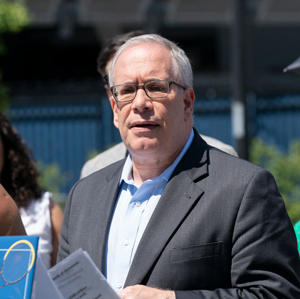Two city agencies are teaming up to perform surprise lead inspections on older buildings undergoing work.
The Buildings and Health departments are showing up unannounced at sites with active construction permits, targeting pre-1978 buildings under renovation. Inspectors are looking for excessive dust. If lead is found in the dust, additional violations and a stop-work order are issued.
So far this year the agencies have conducted 63 such inspections and issued 39 violations at 17 different buildings for dust and other problems, according to the Department of Buildings. Lead was found at four properties in Manhattan, three of which have since resolved the violations.
A stop-work order remains active at the fourth, 582 Academy Street, for excessive dust in the building. Its manager, Barberry Rose Management, could not immediately be reached for comment.
Also, the Department of Housing Preservation and Development has launched an outreach program to owners of older buildings and is performing lead inspections upon request in apartments with a child younger than 6.

City Comptroller Scott Stringer (Credit: Getty Images)
These efforts come as the city faces fierce criticism over its inspection and enforcement programs. A September report by City Comptroller Scott Stringer found that between January 1, 2013 and October 10, 2018, HPD failed to inspect 9,671 buildings at which 11,972 children tested positive for lead exposure.
A report this week by tenant and environmental justice advocates found that the city has only collected $10,190 — or less than 1 percent — of the $2 million in fines it has issued for violations of Local Law 1 since 2004, according to Gothamist. The statute requires landlords to identify and remediate lead-based paint hazards in apartments with young children. At a hearing Wednesday on lead enforcement, the Department of Health and Mental Hygiene contested the report because it didn’t include a “second collection” process.
Lead paint has been illegal in New York City since 1960, but progress in removing it or preventing its exposure was slow for decades. Eventually, tighter rules were implemented and lead-exposure rates in children fell dramatically — from 12% of children under 6 in 2005 to 1.5% in 2017.
But in response to recently reported lapses, elected officials have been making it an issue of late. At Wednesday’s hearing, City Council Speaker Corey Johnson criticized the city’s housing and health agencies being defensive in its responses.
“I think we should say, ‘We’re screwing up. We need to do better,’” he said.
The speaker also said the city should crack down on “bad landlords” who fail to comply with lead remediation rules, remarking, “We need to come down on them like a ton of bricks.”
